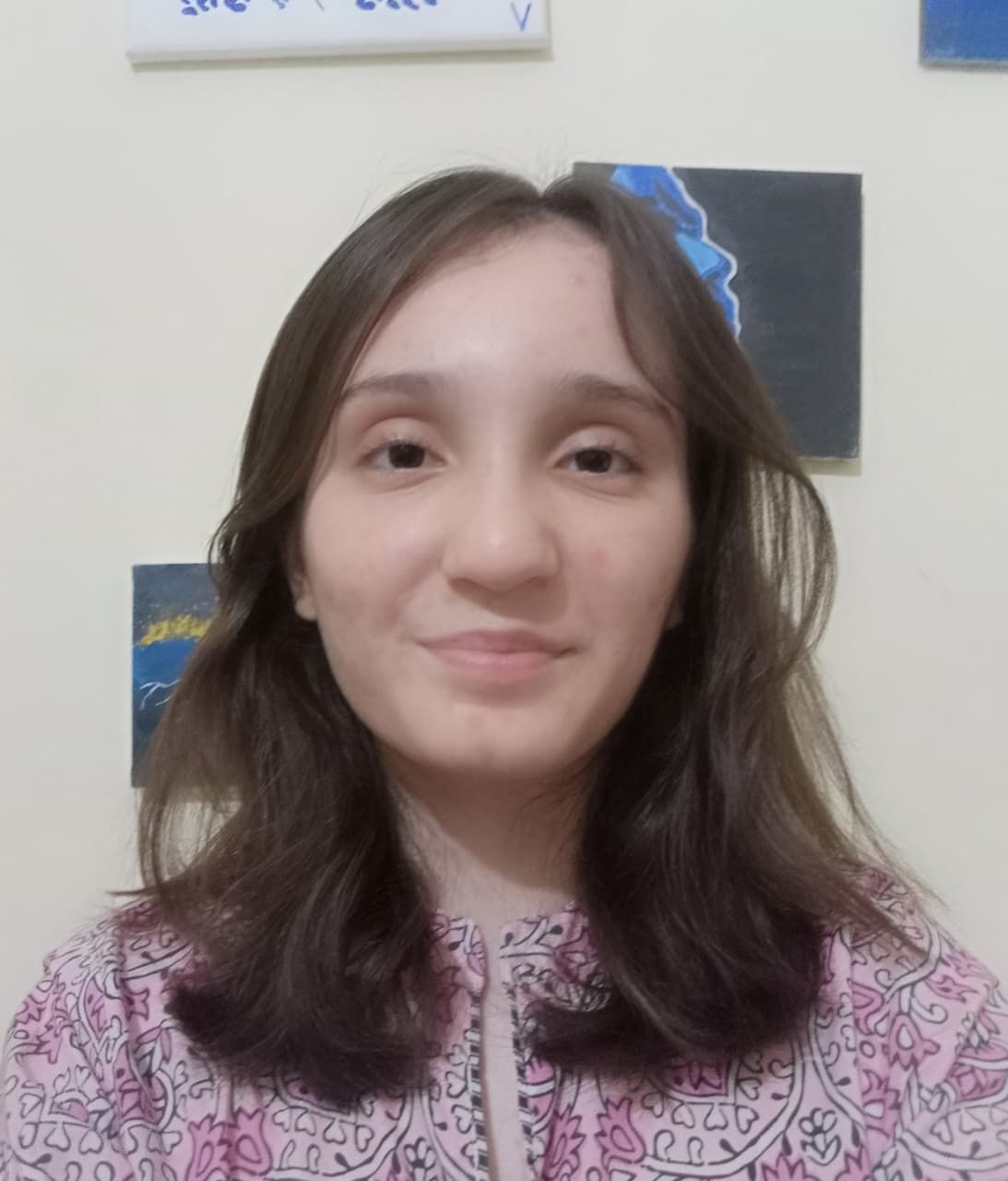At the top of Mahnoor Jalil’s daily to-do list, alongside homework assignments and robotics club meetings, sits one constant reminder: "Take initiative." It's a lesson the 15-year-old sophomore from Pakistan learned early and has carried with her through every challenge, from navigating flood waters in her own home to advocating for climate action across her country.
Growing up across different cities in Pakistan, from mountainous northern villages to suburban areas, Mahnoor has witnessed her country's geographic diversity firsthand. This mobility has shaped her perspective on community and belonging, teaching her to adapt quickly while maintaining her core values of kindness, generosity, and thinking about how her actions affect others. "I feel like you shouldn't be selfish," she reflects, challenging the modern emphasis on self-interest. "You can be selfish—I mean, you will benefit from everything you do, but you should try to think about others." This philosophy guides everything from her creative writing to her involvement in student government and her work with "Acts for Forests," a social media initiative she launched with classmates to raise awareness about climate change and deforestation.
The moment climate change transformed from an abstract concept to an urgent reality came in 2021 when her house flooded. Like the character in her climate change submission, her initial reaction was dismissive—she woke up, thought "it's just a flood," and went back to sleep. But her mother's panicked voices from the other room jolted her into awareness of the crisis unfolding around her.
"Before this event, my approach to climate change was that these were just words in my vocabulary, like I would use them in geography class, but I never really thought about it," she explains. "When that happened to me, the whole experience became so real." Watching her neighbor's car disappear under flood water and seeing her family's furniture, books, and documents destroyed made her realize the broader implications for vulnerable communities living in coastal regions or slums. This personal experience drives her current activism and her academic pursuits. As a computer science student with a particular interest in artificial intelligence, Mahnoor sees technology as a potential solution. She wants to understand how AI impacts the world and how it might be harnessed for positive change.
Her creative approach to problem-solving shines through her academic work and activism. When crafting her climate change submission for ChallengeUS, Mahnoor chose multiple formats—diary entries, poems, news reports—to capture different perspectives across time. "I wanted to encapsulate the future as well as a past experience," she explains. "I felt like one piece of writing or one way of writing wouldn't be sufficient enough."
This multifaceted approach reflects her broader philosophy about impact and leadership. Rather than aiming for immediate, massive change, she advocates for expanding individual "bubbles" of influence gradually. "Everyone lives in their own world, and I want my bubble to expand in a sense where, if I bring the change, I can slowly and gradually make other people's bubbles change as well."
Her commitment to taking initiative extends beyond environmental activism. This year, she spent five months applying for a youth exchange program, handling all the paperwork, interviews, and logistics herself. Though she wasn't selected, the process became what she considers her greatest accomplishment to date. Watching her navigate the complex application inspired younger students to apply for similar opportunities. "Some of my juniors saw me at school filling out those forms and getting forms from my teachers, and they were like, 'Wow, I want to apply next year too. I want to be just as passionate about this as you,'" she recalls. The experience taught her that failure isn't something to fear—it's an opportunity to inspire others and build confidence.
As a member of her school's robotics club and student council, Mahnoor balances technical skills with leadership development. Her teachers, whom she credits as mentors alongside her family, support her various endeavors even when they conflict with traditional academic schedules. This support system reinforces her belief that mentorship comes from many sources. "I feel like every individual person can teach you something," she says, describing how her seventh-grade English teacher taught her about different perspectives, while her current math teacher offers guidance on both academics and personal development.
Mahnoor’s diverse interests, ranging from painting to research to essay writing, act as complementary tools for expression and impact. "I fear that may spread me thin, but at the same time, I feel like I can't get enough of everything," she admits. Her YouTube search history reflects this curiosity, spanning random topics that feed her constant research habit.
Her vision for the future centers on artificial intelligence and continued activism, but she's intentionally taking "baby steps" rather than rushing toward grand transformations. "I don't want to make a transformative, tremendous impact all at once," she explains. "I really want to take one step at a time." This measured approach to change reflects her understanding of youth leadership. Unlike those who view young people as "future leaders," Mahnoor insists that "we're not just future leaders, we're also present leaders." She believes providing students with platforms to advocate, express themselves, and pursue their interests creates immediate impact while developing skills for long-term change.
Her climate change submission concluded with a powerful declaration: "The future is listening." For Mahnoor, this isn't just a call to action—it's a reminder that today's choices echo forward in time, that present leaders must act with future consequences in mind, and that the voices of young people deserve to be heard now, not someday.
As Pakistan continues to face climate challenges, from flash floods in northern regions to coastal threats, Mahnoor represents a generation refusing to wait for others to solve the problems they'll inherit. Armed with initiative, creativity, and an expanding bubble of influence, she's writing her way toward a future where technology serves humanity and where taking action—however small—creates ripples of meaningful change.
Read her Category-Winning submission here.

Mahnoor Jalil, Creative Writing Category Winner — Summer 2025 ChallengeUS Future Leaders Competition
[Photo/Courtesy of Jalil]

